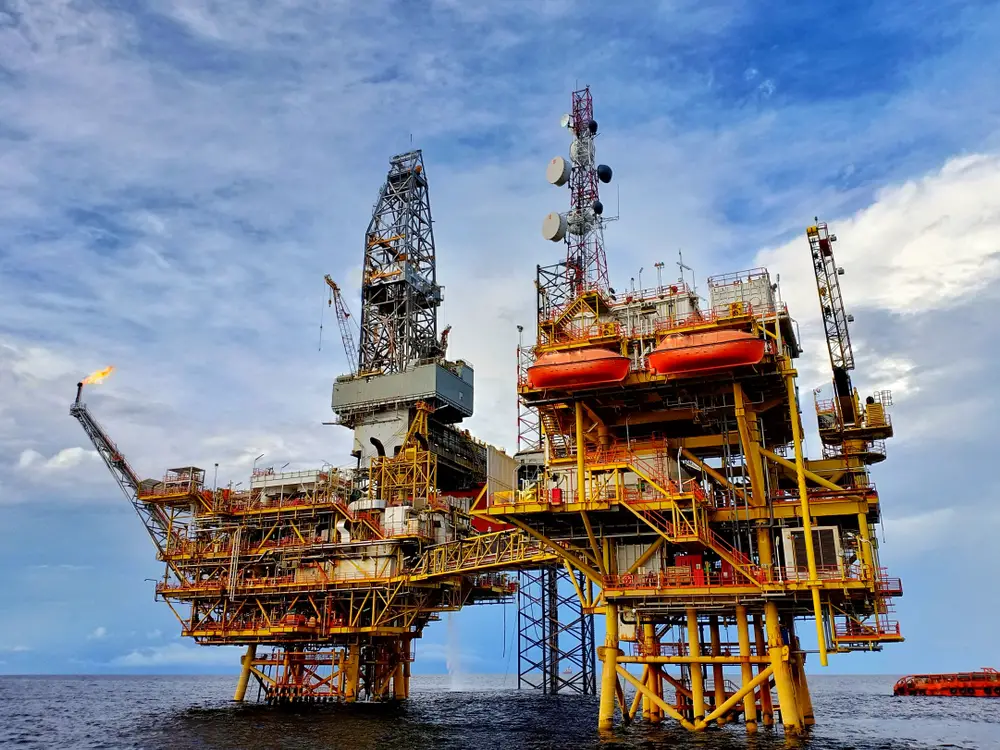Norwegian oil and gas company Equinor, in partnership with UK-based Ithaca Energy, announced their final investment decision to advance Phase 1 of the Rosebank development on the UK Continental Shelf. This substantial investment of $3.8 billion will see the development of the Rosebank field, considered the largest undeveloped field in the UK.
The North Sea Transition Authority (“NSTA”) granted consent for the field’s development on September 27, 2023. Located approximately 130 kilometers northwest of Shetland, the Rosebank field is estimated to hold recoverable resources of around 300 million barrels of oil across Phase 1 and 2, with Phase 1 targeting 245 million barrels of oil.
The project will involve the creation of subsea wells linked to a repurposed Floating Production Storage and Offloading vessel (“FPSO”), with initial production anticipated between 2026 and 2027. The Rosebank field is set to produce over 21 million standard cubic feet (MMSCF) of natural gas daily, equivalent to the daily consumption of Aberdeen City.
Equinor leads the operation with an 80% stake, while Ithaca Energy holds the remaining 20%. Geir Tungesvik, Executive Vice President of Projects, Drilling, and Procurement at Equinor, emphasized the project’s significance, stating, “Developing the Rosebank field will allow us to grow our position as a broad energy partner to the UK, optimizing our oil and gas portfolio and increasing energy supply in Europe.”
Furthermore, the Rosebank development is aligned with the North Sea Transition Deal, designed to reduce carbon emissions. The FPSO is electrification-ready, and Equinor and Ithaca Energy are collaborating with government and industry stakeholders to explore a regional power supply solution to minimize carbon emissions from production. Electrification is expected to decrease the Rosebank lifetime upstream CO2 intensity from 12kg to about 3kg CO2 per barrel of oil equivalent (boe).
The Rosebank project is projected to generate a total direct investment of £8.1 billion, with 78% of this expected to be allocated to UK-based businesses. During the construction peak, it is anticipated to support approximately 1,600 jobs, with around 450 UK-based jobs sustained throughout the field’s operational lifespan.
Other project players
As part of the Rosebank development, TechnipFMC has been awarded an integrated engineering, procurement, construction, and installation (iEPCI) contract for subsea production systems, umbilicals, risers, and flowlines, estimated at $500 million, with a substantial portion of the contract value generated from local activities across the UK.
Odjfell Drilling secured a rig contract valued at approximately $328 million, including options, for the Deepsea Atlantic semi-submersible drilling rig, set to commence a seven-well drilling campaign in the second quarter of 2025, with four single-well options included.
Altera will provide a bareboat charter and an operations and maintenance contract for the Petrojarl Knarr FPSO, to be deployed for Rosebank under a firm contract for nine years, with potential extensions up to 25 years.
Also read: Italian contractor Saipem signs $550 million offshore drilling contracts
Gilad Myerson, Executive Chairman of Ithaca Energy, expressed enthusiasm for the project’s economic and energy benefits, noting that Rosebank would create jobs and contribute significantly to the UK’s energy needs.
Equinor gained operatorship of Rosebank with the acquisition of Chevron’s 40% stake in 2019, with the field initially discovered in 2004.
Despite opposition from environmentalists, the UK government has given the green light to the Rosebank project, citing energy security as a priority. The project aims to reduce emissions by electrifying the extraction process, with electrification expected to be implemented by 2030.
The Rosebank field, while relatively small on a global scale, is anticipated to produce 300 million barrels of oil throughout its lifetime. The decision to proceed with the project has been met with mixed reactions, with some criticizing it for contradicting net-zero emission goals, while others emphasize the importance of domestic fossil fuels for energy security.
Equinor plans to invest $3.8 billion alongside Ithaca Energy in the first phase, with the project’s lifetime expenditure through 2051 estimated at around $9.8 billion, primarily benefiting British firms.
Ithaca Energy’s shares saw an 8% increase in early trading, while Equinor’s shares rose by 1.1%. The North Sea Transition Authority, the UK regulator, considered Rosebank’s emissions in relation to the country’s climate plan.
This development approval follows concerns from North Sea producers, including Ithaca and Equinor, about a windfall tax imposed by the UK government in response to the 2022 energy price shock. The tax includes an investment incentive that allows oil and gas companies to offset a significant portion of their tax bill for new production expenditures.

